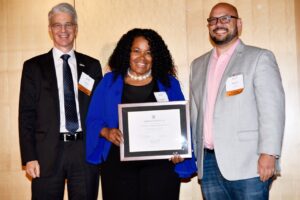 On the Road to College, summer is a welcome reprieve from the school year. A time to reflect, relax, and recharge. Summer is a time for family and vacation, for gathering and bonding. While originally established for now outdated reasons, the long duration of summer can also lead to summer slide—the slow growth of academic rust that takes much of September to scrub clean. Let’s cover three things that can be done in the summer to make the most of the downtime in between school years.
On the Road to College, summer is a welcome reprieve from the school year. A time to reflect, relax, and recharge. Summer is a time for family and vacation, for gathering and bonding. While originally established for now outdated reasons, the long duration of summer can also lead to summer slide—the slow growth of academic rust that takes much of September to scrub clean. Let’s cover three things that can be done in the summer to make the most of the downtime in between school years.
For rising seniors, need they be reminded, summer is a time for the essays. In addition to the Common Application essay, rising seniors who apply to approximately 10 schools are likely to have around 20 supplemental essays. In other words, a lot of work. The key for this part of the application process is to get far enough along in this main essay to create a pivot point around which the supplemental essays form a constellation that comprise the overall narrative. Besides that, along with any final standardized tests students may need to take and homework due when school starts, college visits can be helpful. Treat them as an opportunity to bond with family, to cultivate the filter to choose those final schools to add to the list, and refine against July AP scores and updates to Naviance. The more work rising seniors can finish in the summer, the better: Fall is a time warp whereby seniors have a headwind due to all the work and competing priorities.
For rising sophomores and juniors, summer is a great time to “skill up” in a few key areas. Start with reading by finding books through goodreads.com and filtering by grade level, practicing chapter summaries, one-page book reviews, even creative graphic based book reports. Try to make it fun, and incentivize the work with some kind of carrot of an activity to motivate. Reading and writing, beyond their inherent value, pay dividends for the upcoming years as it relates to in-class writing assignments, history DBQs, and standardized tests. PSAT prep is another good activity for a few reasons. Students take the PSAT and then PSAT/NMSQT in 10th and 11th grade, respectively. Tools like Khan Academy help identify content gaps (topics not taught or covered well) or skill gaps (taught but not retained) with enough time to learn before testing. Persistent prep throughout high school is unhealthy, with time better spent with an enriching activity, so students may better diagnose areas of strength and necessary growth during the summer when there is less stress. Consider a certain amount of time per day a few days every week to work through the SAT portal with Barron’s or Princeton Review books, but still carve out some days for pure creativity, imagination, and spontaneity—balance!
For middle school students and rising freshmen, focus mostly on reading and writing. Again, goodreads.com books filtered by grade level are a great way to start. Try short writing prompts that are fun or creative or illustrative using Photoshop or canva.com. Present them to your family in a focused but informal setting. I will never forget reading and having Thoreau’s Walden read to us in Maine by campfire with my family. That it was a special family memory superseded the nuance of his writing, albeit a great lesson, too!
For emphasis, summer is a time for family and fun, but a time to learn or try to appreciate the joy of learning for itself without the limitations of class periods, without the stress of tests, without comparison to peers, and with the intent of staying sharp, continuing to grow, and to become more ready for college, and for life.
Tony Di Giacomo, Ph.D. is an educator and founder of Novella Prep. He has 20 years of experience working in admissions, development, teaching, and research at variousuniversities. Prior to launching Novella Prep, Tony worked at the College Board, where he led and managed research on the SAT, PSAT, AP, and other programs. You can reach him at tony@novellaprep.com.






